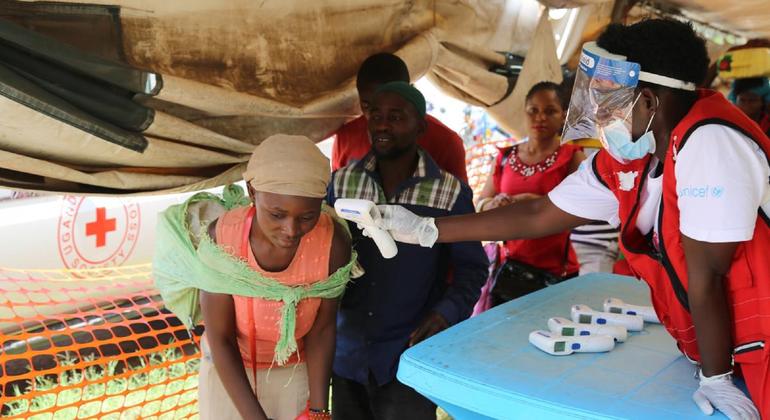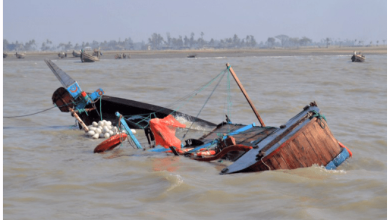Uganda declared the end of the Ebola virus outbreak

Infections have occurred in the major cities of Kampala and Jinja, raising concerns that the disease could extend well into 2023. In 2019, Uganda experienced an outbreak in Zaire of Ebola.
The head of the UN health agency, Tedros Adhanom Ghebreyesus, congratulated the authorities for their “robust” response to the outbreak, less than four months after the first case of Ebola Sudan was confirmed, in the central region of Mubende.
“Uganda has shown that Ebola can be defeated when all systems work together, from having an alert system in place, to finding and monitoring the affected people and their contacts, to get the full participation of the affected communities in the response,” said Tedros.
An unwelcome guest
In all, 55 people died and 87 recovered in the new outbreak, according to WHO, whose Regional Director for Africa, Dr Matshidiso Moeti, noted that There are no vaccines yet to treat the Sudanese strain.
“This is one of the most challenging Ebola outbreaks in the last five years,” said Dr Moeti. “But Uganda stayed the course and constantly revised its response.
“Two months ago, it looked like Ebola would cast a dark shadow over the country well into 2023…this victory started the year on a note of great hope for Africa.”
The ‘magic bullet’: Community engagement
The virus is spread to humans from wild animals and can be spread by direct contact with infected human blood or other bodily fluids. Symptoms of Ebola – formerly known as Ebola hemorrhagic fever – include fever and vomiting, including internal and external bleeding.
To stop the further transmission of the virus – which is the country’s first encounter with the Sudanese Ebola virus in ten years – WHO works with national health organizations to define the threat to the population at risk and the need for transmission contraction in hot spots of infection. Mubende and Kasanda.
“As we expand our efforts to deliver a robust response across the nine affected regions, The magic bullet has been our communities who understand the importance of doing what we need to end the outbreak, and take action,” said Dr. Jane Ruth Aceng Acero, Uganda’s Minister of Health.
WHO also helped trace more than 4,000 people who came into contact with people with the Ebola virus. Once identified, these contacts are monitored for 21 days, before being given the all-clear.
The last patient was released from treatment on November 30 when the 42-day countdown to the end of the outbreak began, according to WHO, which noted that the case fatality rate for this outbreak, is 47 percent.
Uganda declared the end of the Ebola outbreak.
Sharing the burden
The UN health agency provided nearly S$6.5 million for the first response and an additional $3 million to support preparedness in six neighboring countries.
Practical support from WHO includes deploying experts, providing training in tracing, testing and treating patients, as well as building isolation and treatment facilities and providing laboratory testing equipment.
Thanks to these joint efforts,”The processing time for Ebola samples drops from a few days to six hours”, WHO said, adding that it has helped to protect future health workers by ensuring the stability of our personal protective equipment.
Prepare for the next outbreak
WHO also works with partners including vaccine developers, researchers, donors and Ugandan health authorities, to identify candidate treatments and vaccines for inclusion in trials.
Three experimental vaccines are known and over 5,000 needles arrived in Uganda in record time last month79 days after the outbreak was declared.
Although there are no vaccines at the moment, the UN agency insists that a quick response to the health threat “mark an important milestone in the world’s ability to respond to rapidly growing outbreaks and prevent them from becoming great”.
The Sudanese Ebola virus is one of six strains of the disease for which there are no approved treatments or vaccines. To address this weakness, the WHO stated that Uganda has been able to use its long experience in responding to epidemics and “speed up key areas of response in the sea“.







